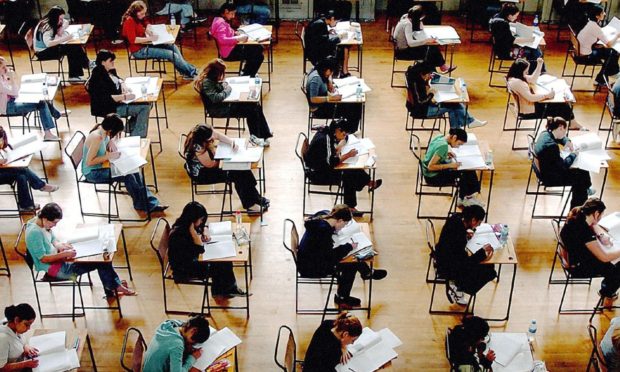Coronavirus stress and essay mills which “prey on students’ vulnerabilities” are thought to be behind a spike in university cheating cases.
Figures obtained by The Press And Journal show institutions in the north logged 338 incidents over the last full academic year.
This was up from 290 in 2018-19, and marked a more-than-50% hike on 2014’s numbers.
Part of the jump is thought to have been caused by a “proliferation” of essay mills, which encourage students to buy pre-written essays and pass them off as their own.
Education chiefs says many operate with a “sophisticated playbook”, initially luring students in by pretending to be a mere study support service.
It is estimated there are almost 1,000 such companies currently operating across the UK, preying on vulnerable learners feeling the pressure to excel.
Some are allegedly involved in exploiting graduates overseas where they are forced to work 12-hour shifts churning out essays for as little as $1 an hour.
A private members’ bill from former universities minister Chris Skidmore to ban the practice is currently making its way through Westminster.
Anttoni Numminen, a third-year at Aberdeen University and news editor of student paper The Gaudie, said the increase in cheating incidents could be linked to an abundance of adverts for essay mills.
He said: “Try posting anything on Twitter with the words ‘essay’ or ‘deadline’ and you’ll get three or four adverts in your replies straight away.
“It also reflects some of the pressure on students to constantly get high grades.
“The Covid pandemic has made things worse, with adverse effects on most students’ ability to do as well, be that through a lack of resources or an environment in which you can’t study.
“I’m not saying it’s right, but you can perhaps see why it is happening.”
The move to ban essay mills has been backed by the National Union Of Students (NUS) and it is understood representative body University Scotland is also “minded” to support the move.
NUS Scotland president Matt Crilly said: “These private companies prey on students’ vulnerabilities and insecurities to make money through exploitation – and never more so than during the pandemic.
“We hope that preventative action will be taken against them very soon.
“In the meantime we would urge universities to put in place academic and pastoral support so that students are never in the position of feeling they have to turn to essay mills in the first place.”
Statistics breakdown
Of the 338 cases of collusion and plagiarism reported by north universities last year, the majority were experienced at Aberdeen University and Robert Gordon University, with 144 and 141 respectively.
Incidents were also discovered at SRUC, Nescol and the University Of The Highlands And Islands (UHI).
A spokesman for Aberdeen University said it takes such cases “very seriously” and keeps incident numbers under active review.
Robert Gordon University, meanwhile, said it is “committed to academic integrity.”
“In the academic year 2019-20, as we transitioned off campus due to Covid, our assessments were adjusted with formal invigilated examinations being replaced by online assessments,” a spokeswoman said.
“In the changed way of assessing, academic staff have continued to be vigilant to identify instances of potential misconduct, such as collusion – where students have worked together or shared work – and plagiarism.”



